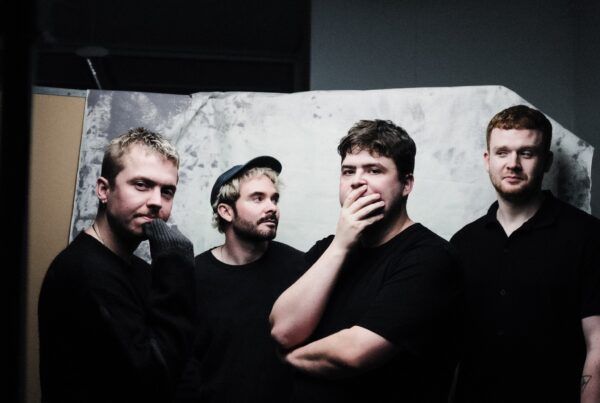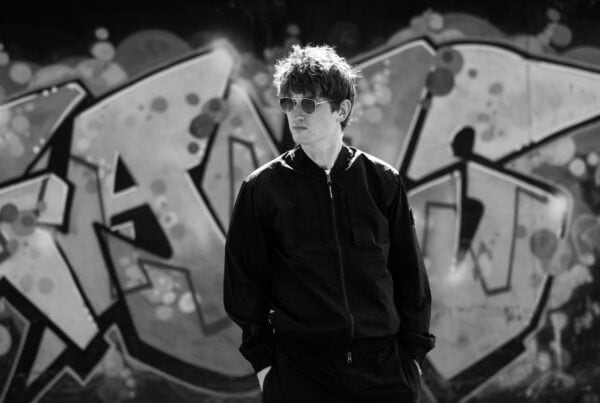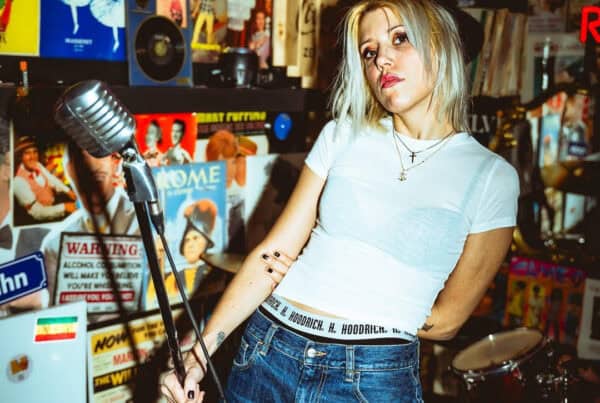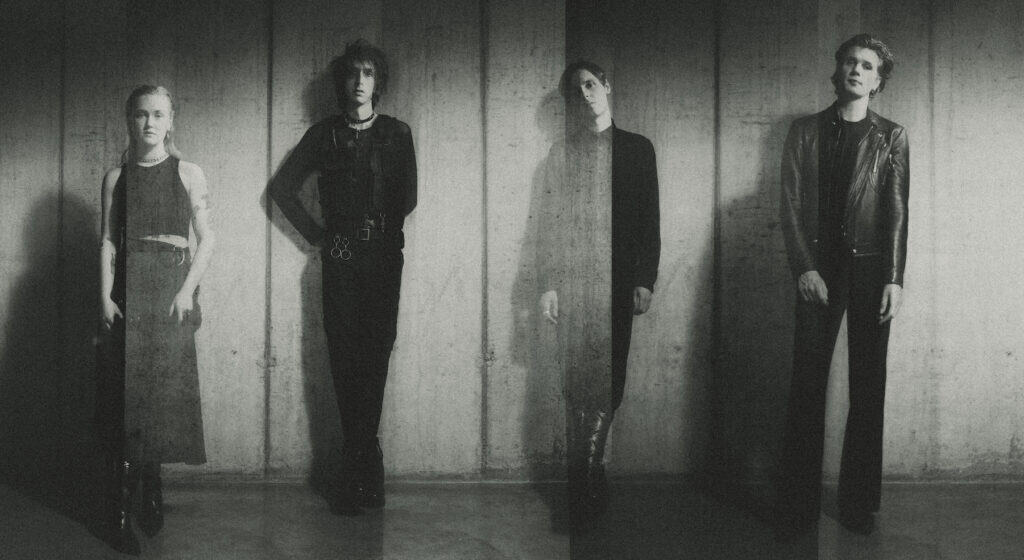On May 29th, 2024, Disney+’s new series titled Camden hit the streaming service around the world.
It’s a four-part documentary series that highlights the town in London, called Camden, where many ‘big name’ celebrities made their first marks and started their journeys into the people they are today. It introduces viewers to the culture and lifestyle of the area, showing everyone the magic that this town holds.
Besides being executively produced by Dua Lipa, the series features artists such as Coldplay’s Chris Martin, Little Simz, Boy George and Yungblud, just to name a few.
The episode directors that brought the series together are Toby Trackman, known for documentaries around sensitive subjects, Yemi Bamiro, who has a background in sports, and Sarah Lambert, who has also worked on documentaries of tough to hear topics.
For the interviews, we asked these episode directors about their personal ties to Camden, their own histories with music, their inspirations and more. Here’s what they had to say, and don’t forget to check out Camden now on Disney+, and on Hulu in the US!
Camden as a Location:
The namesake of the series is a town in London called Camden Town, more commonly known as just Camden. The sheer number of noteworthy people that either grew up in Camden or lived there for extensive periods of time is something to be studied, hence the reason for this docu-series.
The location itself nowadays doesn’t look like it has much to offer and is described as ‘alternative’ by the Visit London website. Coldplay’s Chris Martin takes it a step further and describes it as a ‘sh*thole’, affectionately, in his interview in the series.
Trackman:
“Yeah, I think Camden’s legacy is greater than its environment. It’s pretty scummy and these days it’s overrun with tourists during the day, but it’s characterful is one way of describing it.
“I mean it’s colourful, it’s vibrant. You’re going to see graffiti everywhere, all kinds of shops and markets and bars.
“I mean, it’s just kind of quite a lively place that somehow has managed to resist the tide of gentrification that’s kind of flattened and homogenised so much.”
Bamiro:
“I was at MTV for like five or six years. It was the early 2000s and Camden was still a hub music and creativity. It was when MTV was still this is pre-YouTube, it wasn’t all scripted reality.
“I guess it was about taking the excitement of those years and putting them into an episode about all this music and all these artists that I’d always loved forever. Whether that be Questlove or The Roots or Chuck D or Gilles Peterson.
“It was just an opportunity to bring everything full circle in terms of working in TV in Camden in the early 2000s and now you actually get an opportunity to tell a story about, the creative art that Camden was in terms of housing all of these incredible artists.”
Lambert:
“I used to always really like going to Camden as well, because I feel like when you’re making a documentary about a place, you have to be in the place, you have to feel it.
“The reason we’re here talking about Camden is because it has this distinct energy that nowhere else has. It’s a specific type of place. So, I think just going there and being there, it’s different now than it was 15 years ago, when I first moved to London. The market is completely different.
“A lot of it has changed, but it still has that edginess. I love the edginess of Camden, so I think being there, listening to the music, and trying to absorb as much as I can, read as much as I can, watch as much as I can, really delve into it.”
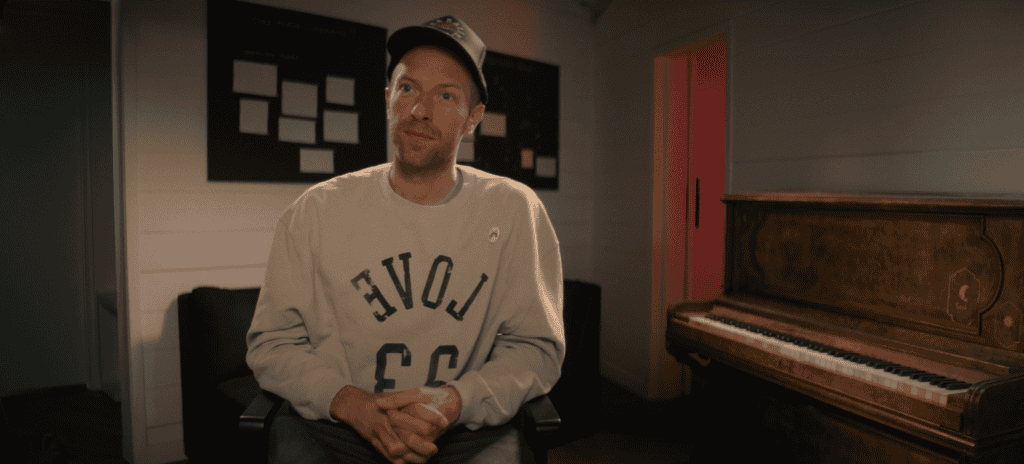 Chris Martin on Camden by Disney+
Chris Martin on Camden by Disney+
Inspirations and Motivations for the series
Every creative mind gathers inspiration from different aspects of life. Some people get it from locations, others from experiences.
Trackman:
“It’s been thrilling. It was really good fun. It was thrilling and wonderful. Me, I have another life in music as well as film. So, to be able to give and be given the opportunity to combine the two of them together is just a brilliant opportunity.
“I think that’s coupled with the level of aspiration that the channel had, and the production company had for how we were going to kind of realise things.
“When you step into that environment where you’re led by an Oscar winning team, and you’ve got access to mega A-listers, and you’ve got production saying, here’s all the resources that you need, go and have fun.
“That’s a really exciting safe space to be in, where you know that you can experiment, and push things and you’ll be supported. It was a wonderful opportunity.”
Bamiro:
“Like, obviously, the episode had a structure, but most of the time, I’m just asking them questions about stuff that I’m interested in.
“I know that it’s stuff that other people would be interested in, lots of people don’t know that The Roots used to live here, or people don’t really understand how big, Soul for Soul were in the 90s, and the fact that they were one of the first British bands to break America.
“So, there were all these things that I’d always found interesting, but it was just an opportunity to delve into that in detail and connect that back to the common denominator in all of this, Camden.
“The diversity of music, diversity of dress, of style, of thought. That was the reason why, all these artists were allowed to flourish.”
Lambert:
“When I first moved to London, we went out in Camden every weekend. I have so many memories. Every Friday night, we went to Coco.
“I think I was in the hallway with a friend. She was like, you know, Pete Doherty drinks here. We were both like, ‘Oh my God, Pete Doherty’. During the interview, Pete and I were like trading notes on Camden pubs, which was just hilarious.
“But what I have always really appreciated about Camden, and I think this is actually, similar for Yungblud, is that if you come from somewhere where things are like a bit more restrictive.
“I’m Irish, it’s like a smaller culture, a smaller community, people pay attention to what other people are doing.
“When I moved to London and particularly Camden, you could just do whatever you want. No one cares. Like the lengths you would have to go to, to get noticed in Camden is spectacular because there are so many characters everywhere.
“I just found that really freeing to go somewhere where you can just be yourself and no one cares, no one’s going to bring you down.
“It is just like a nice free place and I think that’s what lingered, that’s what resonates with Camden now. Even though it’s changed over the years, there is just something about it. You come out of the tube station, and you look up and down and nowhere else looks like that.”
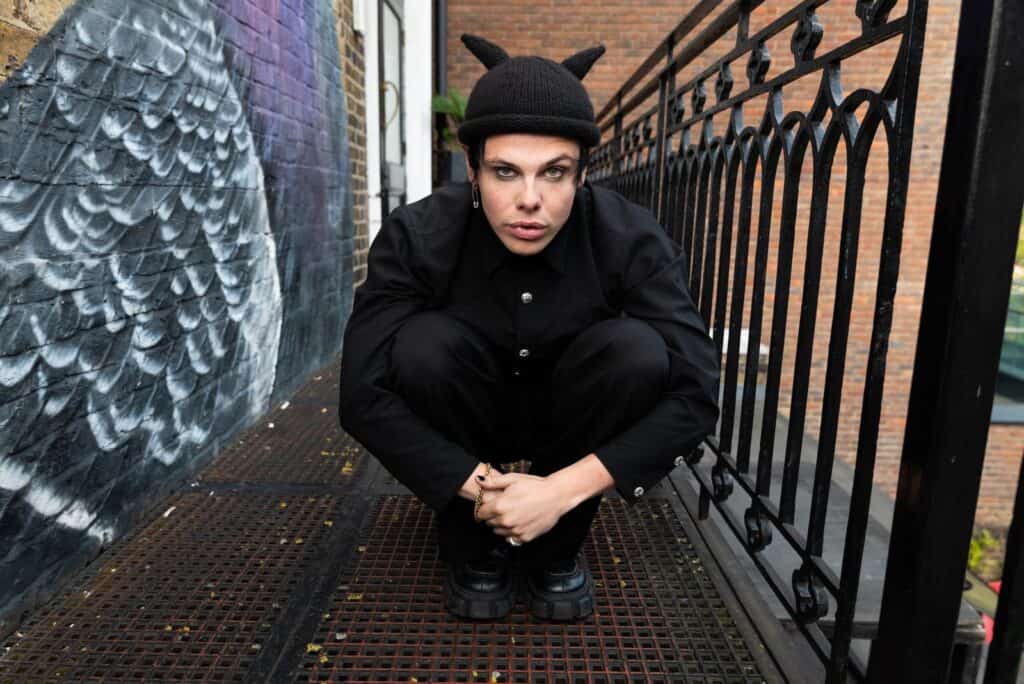 Yungblud on Camden by Disney+
Yungblud on Camden by Disney+
Histories with Music:
Unsurprisingly, the directors of Camden, like so many of us, have overwhelming love and even dependence on music in their lives. Same as the artists they’ve worked with to bring this series to life.
Trackman:
“I grew up in Bristol in the 90s in the peak Massive Attack era. There was a pirate radio station, I’d get these 20-minute sessions every week from this this guy up in London called Gilles Peterson, playing all this other stuff that’s just like, wow, what’s that?
“I heard he had a record label, and I wrote to him at age 15, asking for some work experience. It probably wasn’t directly from him, but anyway, someone said yes.
“So off I went. I went and stayed up in London at my grandma’s and hung out in Camden at 15 with, all the jazz cafe Dingwall’s crew and that really got me into DJing properly, in that Gilles Peterson, Norman Jay world.
“Then when I went back to Bristol, I got involved more heavily in the sound system jungle world. I’d go back up to London to play Bagley’s and all that kind of stuff.
“I was in a live hip hop band, we were there as the DJ, and we were playing at the jazz cafe around the same sort of time that The Roots were kind of doing their thing. Sadly, we were never on the same bill. I can’t quite claim that fame, but that was, that was my, that was my world.
“When they came to me and discussed this project, I was like, this is me. I can bring this to life in the most authentic way because I was there. I know it. That’s just brilliant. It’s the best fun over the last year and a half, living in my teenage fantasies again, basically.”
Bamiro:
“I think the rule that I have in relation to the work that I pick is that I always have to have some sort of like personal connection to the work, because if I if I don’t, then I can’t, it would be me being disingenuous, and I wouldn’t be able to necessarily do it justice.
“It always feels like a privilege to work on things like this because I’ve loved music since I was like 11 years old. I’ve loved this type of music since I was 11 years old.
“So there’s always like a little pinch yourself moment when you’re doing this job because it’s something that, if I could have told my 15-year-old self that, you get to hang out with Chuck D and talk to him about coming to Camden in the 80s with Def Jam and Public Enemy. That’s mind-blowing stuff.”
Lambert:
“I listen to the music all the time from different artists, because I think it’s all about the music.
“Whenever I prepare for any interviews or research anyone, I just listen to the music over and over, to the point where this morning, my partner put on a really random Joe Strummer song, it came on Spotify.
“And he was like, ‘who is this?’ I was like,’ Oh yeah, that’s Joe Strummer’. He was like, ‘how do you know’? And I was like,’ because I have listened to every Clash song so many times, you would not believe it’. It’s like. burnt into my mind.
“It’s all about the music. I used to always really like going to Camden as well, because I feel like when you’re making a documentary about a place, you must like to be in the place, you must feel it.”
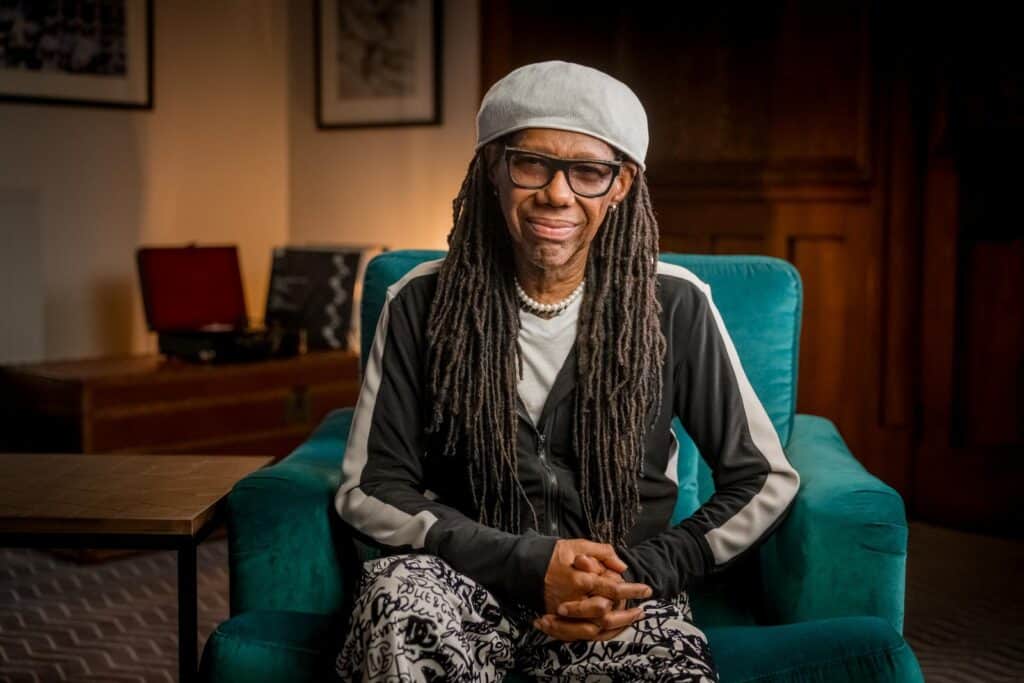 Nile Rodgers on Camden by Disney+
Nile Rodgers on Camden by Disney+
Final notes:
The youth coming into the industry in the following years are in the minds of Camden’s episode directors. What words of advice would they give to those following in their footsteps?
Trackman:
“I think we’re at an interesting time at the moment while one set of opportunities seems to be closing, a whole other set of opportunities are opening.
“The exciting thing about that is that the opportunities are opening. There are less boundaries attached to those, there are less gatekeepers, and I think that’s so exciting.
“I think when we were in Camden filming this, there was a club night that we filmed at the Dublin Castle called Club Smiler, which is the living embodiment of the, of the Neuromantics from the 80s, and it’s completely open in terms of identity.
“It was just so inspiring and thrilling to see these young people dressing like they just did not care what anybody thought.
“That was so empowering. I think that gave me real hope. There’s a lot more bravery, I think now than there has been for a long time, in young creatives. That coupled with the freedom of some of those opportunities that are out there, it is exciting.
“I hope that we’ll see, people keep pushing and taking risks because I think the main message is that the more risks that you can take, the truer that you can be to your voice, then potentially the greater the rewards.
“Don’t worry about what other people are doing.
“The most inspiring bits of advice I ever got from another on a project, I was working with a famous author. He said, ‘there’s no such thing as originality, don’t worry about that’.
“All you’re doing is remixing your influences through your experiences and that will be original, but don’t worry about trying to create something truly original.
Just do what you want. That is the message.”
Bamiro:
“I would say just use your initiative and just keep hustling. It doesn’t take anything to find someone’s email online. If it’s a director that you like, or a producer, or you see someone’s names in the credits, and you admire their work, send them an email.
“Let them know that you like their work, and would they be up for having a zoom call? It’s all about how you can be self-sufficient, if you don’t necessarily have the money or the funds or the resources to move to London or move to a big city.
“It’s important that young people understand that it’s a tribe. Never be shy to reach out to people and tell them how into their work you are. Everybody loves compliments and everybody has an ego and I think it’s the best way to connect to somebody.
“Then just build from there because I think most people want to share and help where they can, so I think it would be just hustle and never rest on your laurels and never think that it’s out of your reach.
“Sometimes it’s the simplest things like sending an email or just reaching out to someone or sending someone a DM on Twitter or Instagram.”
Lambert:
“I think be curious. I think I am probably just naturally quite a nosy person and I’m really interested in people.
“When I’m interviewing them, when I’m preparing for interviews, I, I am really invested in what they’re saying, and I think that comes across.
“Don’t be afraid. I think this is so true for the creative industry. It took me a while to learn this.
“Don’t be afraid to just email someone and ask for a little favour, because everyone’s been there.
“Everyone has had to get their foot in the door. When I started in this industry, I didn’t have any contacts. I didn’t have an auntie that works at ITV.
“I just had to scrape my way in myself. For that reason, if people ever contact me, I’m always like, ‘yes’, how can I help?
“Everyone’s had to do it. So, you should never be shy about doing it. If there’s someone’s work, even now that I admire, I will just email them and be like, ‘watch something’. Then just send my true thoughts being like, ‘I really like that for this and this reason. I really respect your work, I’d love to work with you sometime’, and most people will respect that. They’ll really appreciate that you’ve taken the time to look at their work.
“Don’t be afraid to be cheeky, that’s probably the number one rule.”
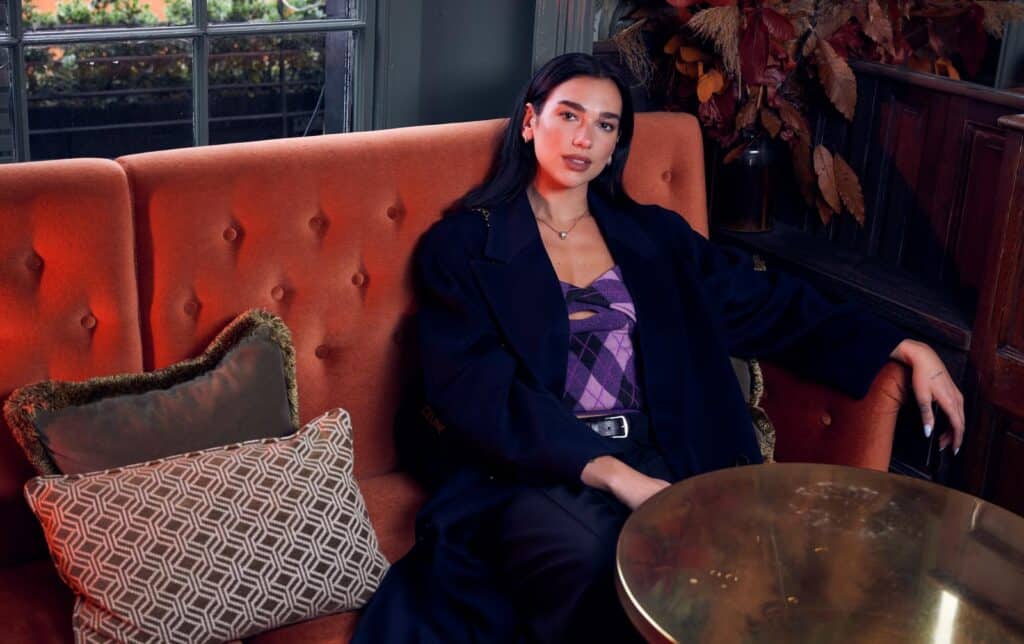 Dua Lipa on Camden by Disney+
Dua Lipa on Camden by Disney+
Conclusion:
Camden serves as a fun, nostalgic documentary series for those familiar with the town. It also covers important topics such as the country’s politics. The series is worth a watch to anyone who is familiar with the area and/or those that have planted their roots there. These celebrities share their stories in a way that is heartfelt and warming. The directors make sure that the scenes move us with the words.
The directors of Camden are talented and down to earth, which compliments the themes behind the documentary. In watching the series you can see each thoughtful detail within each episode.
Camden is now available to be watched exclusively on Disney+ around the world and on Hulu in the US.

